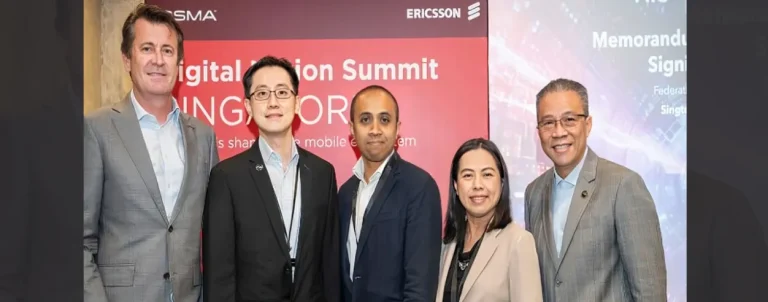Singapore – Singtel, a telecommunications firm, has recently announced its plans to enhance its quantum-safe solutions aimed at helping enterprises secure their systems against evolving cyber threats and scale in the quantum age.
As part of the enhancements, the company shared that it would integrate Post-Quantum Cryptography (PQC) technology from cybersecurity solutions providers Palo Alto Networks and Fortinet into Singtel’s Quantum Safe Network (QSN).
Through the alliance, Palo Alto Networks will offer protection against quantum threats with a PQC IPSec (Internet Protocol Security) virtual private network (VPN). This technology uses the new post-quantum encryption standards established by the United States National Institute of Standards and Technology for secure data transmission and authentication.
Meanwhile, Fortinet’s quantum-compatible solutions will further enhance PQC and Quantum Key Distribution (QKD), a secure method for distributing encryption keys only known between shared parties, to support Singtel in creating a secure, scalable, and commercially viable QSN.
In addition, the company will employ Fortinet’s quantum-resistant PQC software, hardware encryptors, and advanced platforms to establish strong quantum-safe architectures and solutions tailored for enterprise needs.
These recent collaborations will ensure that encryption keys remain secure across diverse applications, including identity, mobility, and authentication services, fortifying enterprises against evolving cyber threats.
Keith Leong, managing director, Enterprise at Singtel Singapore, commented, “Quantum computing presents a significant threat to traditional encryption methods and has the potential to disrupt our digital economy by potentially decrypting sensitive data, exposing businesses to significant risks.”
“The addition of Palo Alto Network and Fortinet’s enhanced software solutions to our QSN ensures our enterprise customers get more industry-leading choices to secure their business against both current and future quantum threats, regardless of their hardware requirements. We encourage enterprises to take the necessary steps to secure their critical assets sooner rather than later,” he also added.
Steven Scheurmann, regional vice president at Palo Alto Networks in ASEAN, further said, “Quantum computing represents a revolutionary technology that promises tremendous advancements but also introduces potential risks, especially for data security. At Palo Alto Networks, we are committed to helping enterprises prepare for this future.”
“By integrating our quantum-resistant VPN solutions with Singtel’s Quantum-Safe Network, we’re ensuring that customers can safeguard critical data against both current threats and the encryption-breaking capabilities of future quantum computers. It’s essential to take action today to secure tomorrow’s digital landscape, and we are proud to be part of Singtel’s efforts to lead in this space,” explained Scheurmann.
Meanwhile, Jess Ng, country head, Singapore and Brunei at Fortinet, stated, “As quantum computing evolves, so must our approach to cybersecurity. Fortinet is proud to collaborate with Singtel to strengthen the nation’s defences against emerging threats.”
“By integrating Post-Quantum Cryptography (PQC) and Quantum Key Distribution (QKD) into Singtel’s Quantum-Safe Network, building hybrid architecture, and leveraging quantum-safe solutions, we are helping enterprises stay ahead of future risks. Through the development of industrial and government use cases, we are committed to building a foundation for a more resilient and secure digital future,” Ng concluded.
After being appointed by the Infocomm Media Development Authority last year to create a nationwide QSN to strengthen Singapore’s defences against quantum threats, Singtel has launched the country’s first QSN in collaboration with ID Quantique (IDQ), a global leader in quantum-safe cryptography.
Earlier this year, the company further signed three memoranda of understanding with leading industry players: Cisco, Fortinet, and Nokia. This enables enterprises to seamlessly integrate Cisco’s routing platform, Fortinet’s firewalls, and Nokia’s optical devices to enhance their defence against advanced cyber threats.












